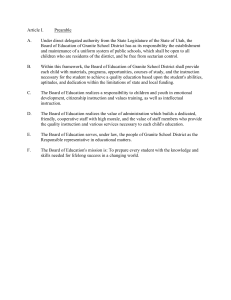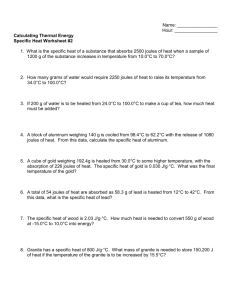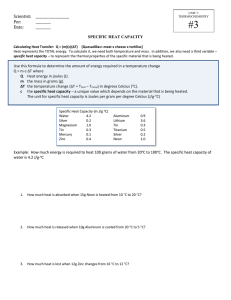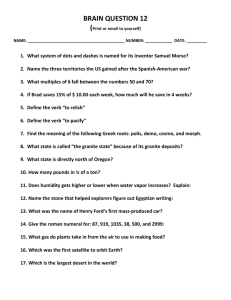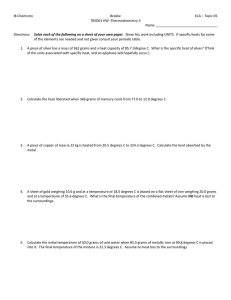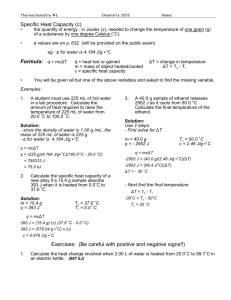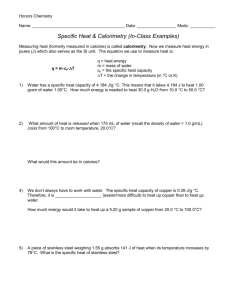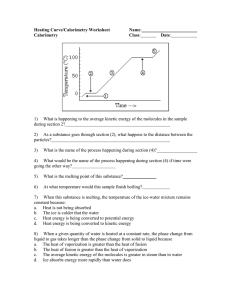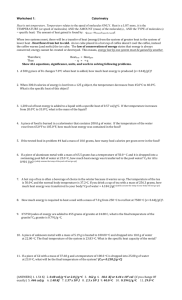Specific Heat Worksheet
advertisement
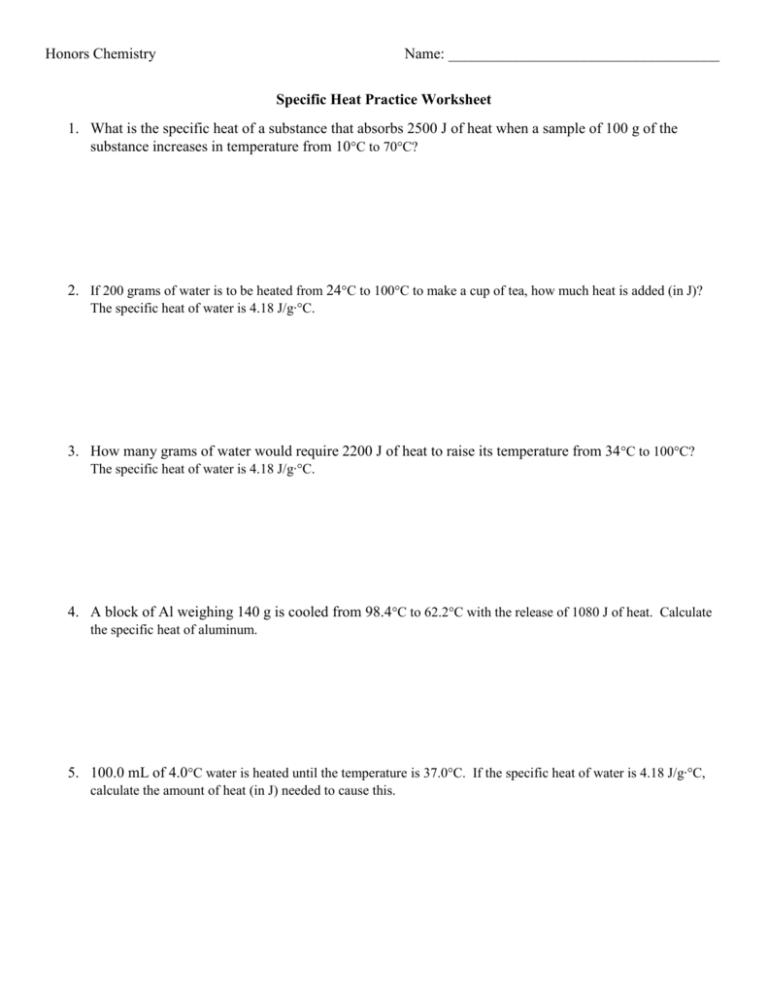
Honors Chemistry Name: ____________________________________ Specific Heat Practice Worksheet 1. What is the specific heat of a substance that absorbs 2500 J of heat when a sample of 100 g of the substance increases in temperature from 10°C to 70°C? 2. If 200 grams of water is to be heated from 24°C to 100°C to make a cup of tea, how much heat is added (in J)? The specific heat of water is 4.18 J/g∙°C. 3. How many grams of water would require 2200 J of heat to raise its temperature from 34°C to 100°C? The specific heat of water is 4.18 J/g∙°C. 4. A block of Al weighing 140 g is cooled from 98.4°C to 62.2°C with the release of 1080 J of heat. Calculate the specific heat of aluminum. 5. 100.0 mL of 4.0°C water is heated until the temperature is 37.0°C. If the specific heat of water is 4.18 J/g∙°C, calculate the amount of heat (in J) needed to cause this. Honors Chemistry Name: ____________________________________ 6. A total of 54.0 J of heat are absorbed at 58.3 g of lead is heated from 12.0°C to 42.0°C. From this data, what is the specific heat of lead? 7. The specific heat of wood is 2.03 J/g∙°C. How much heat is needed to cause a temperature change from -15°C to 10°C? 8. What is the total amount of heat needed to change 2.25 kg of silver from 0°C to 200°C? The specific heat of silver is 0.129 J/g∙°C. 9. Granite has a specific heat of 800 J/g∙°C. What mass of granite is needed to store 150,000 J of heat if the temperature of granite only increases by 15.5°C? 10. A 55 kg block of metal has an original temperature of 15°C and a specific heat of 0.45 J/g∙°C. What will the final temperature of this metal be if 450 J of heat are added? 11. Object A has a specific heat of 2.45 J/g∙°C and Object B has a specific heat of 0.82 J/g∙°C. Which object will have a higher final temperature if the same amount of heat is applied to both objects? Why?
